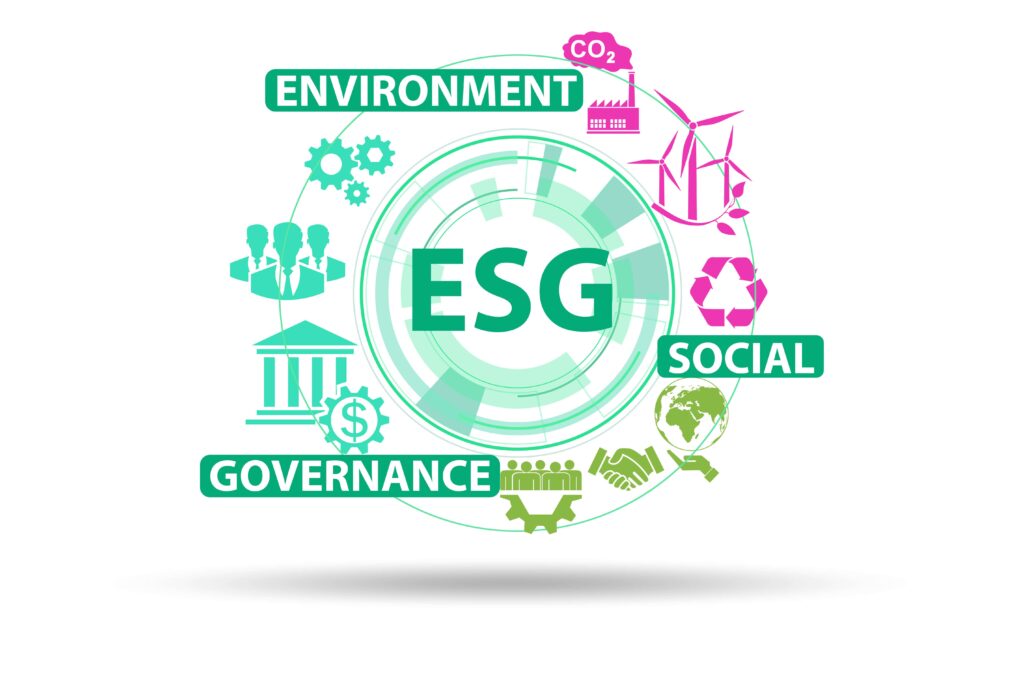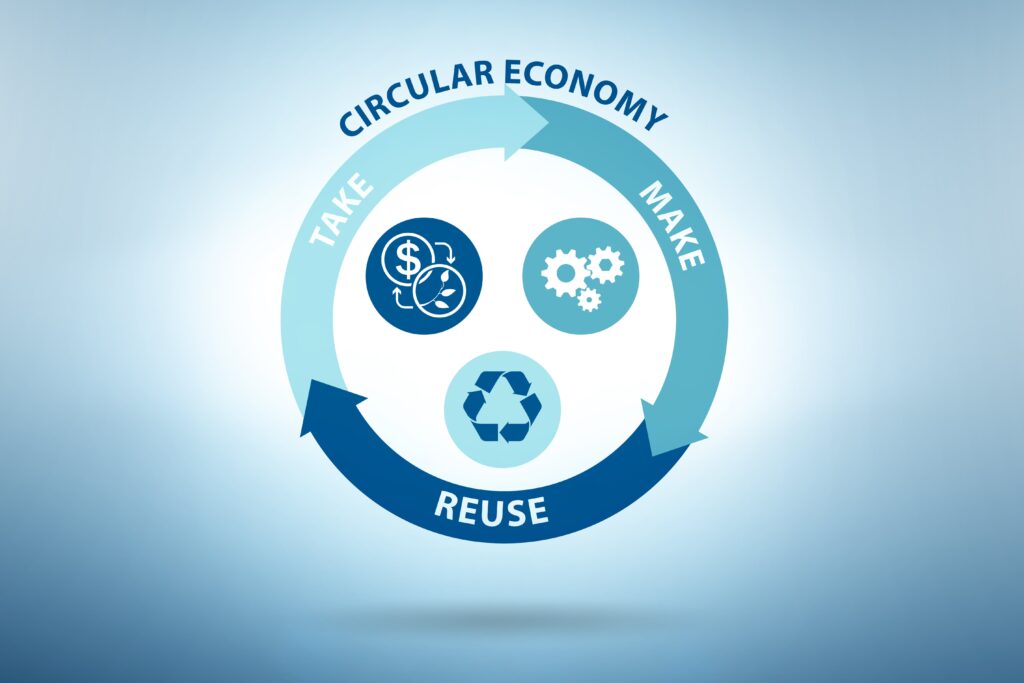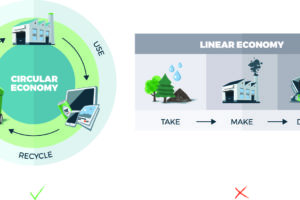The Role Leasing Can Play in Sustainable Strategies
In recent years, sustainability has become a strategic imperative, influencing how companies do business. Sustainability shapes organisations’ agendas, where investors and concerned consumers expect products and solutions that contribute to the transition towards a more sustainable future. The financial sector can play a pivotal role in addressing sustainability issues, from funding for research and development of alternative energy sources to supporting businesses that follow fair and sustainable labour practices.
What are Sustainable Finance and ESG?
Sustainable finance has gained considerable ground because it upholds values that society insists on. It refers to an organisation’s ability to raise resources to fund its activities, based on traditional financial criteria, but also on environmental, social and corporate governance-related dimensions. Eligibility to tap into this financing is dependent on compliance with specific sustainable standards. So, to be eligible, public or private organisations have to demonstrate that they have implemented and embraced environmental and social practices and are tackling their sustainable transition process. The reporting on sustainability is typically framed around ESG, the acronym for Environment, Social and Governance, a criterion that refers to how the company operates.
- Environment: the organisation’s impact, direct or indirect, on the environment. This includes biodiversity, greenhouse gas emissions, renewable energy and energy efficiency.
- Social: this includes factors such as employee rights, salaries, diversity and inclusion, modern slavery and international development. These factors delve into the company’s values, compliance, and business practices that affect society.
- Governance: these factors cover how the company is managed, transparency and criteria for its internal procedures and regulations. Variables include bridging the salary gap, and eradicating discrimination based on gender, age, religion, sexual orientation, and disability.

According to the BCG, the ubiquity of information about corporate practices, and the extensive evidence that companies that are proactive on issues such as diversity, climate stabilisation, and consumer responsiveness, can deliver substantial financial rewards. This is motivating large investors to embrace sustainable finance and to engage directly with corporate executives and boards.
Going Green and Financing Change
Pressure is mounting for companies to operate more sustainably, and the pandemic has acted as a great accelerator of climate action. Rather than taking a backseat, an ING survey found that companies have accelerated their green transformation plans, and investors are demanding more challenging environmental targets. The number of companies pledging to reduce carbon emissions to net-zero by the end of the century – in fact most aiming for 2050 – increased to more than 1,500 in 2020, tripling the number from the previous year.
Investors and companies recognise that sustainability is a priority with business risks and opportunities. An increasing number of companies are tying the interest rates on their corporate loans to environmental and other sustainability targets as they face pressure from investors and regulators to go green. To get sustainability programs right, leaders need to include sustainability as a core component of corporate strategy and work in partnership with the financial sector to deliver the transition at the necessary pace and scale. A recent survey by the Equipment Leasing & Finance Foundation highlights as the key to success the need for management to be transparent about its ESG strategy, commit to ESG principles and communicate the benefits, risks, and expected results to the organisation.
Leasing and the Circular Economy
The circular economy is an alternative to the traditional linear economy model of Make -> Use -> Dispose, in which we keep resources in use for as long as possible, extract the maximum value from them while in use, then recover and regenerate products and materials at the end of each service life. The circular economy offers a positive vision of a world in which products are designed to be reused, repaired or repurposed, and natural systems are regenerated. All areas of finance will play an important role in bringing forward the transition to a circular economy, including the leasing industry. As LeaseEurope explains, the leasing and automotive rental industries are, by their very nature, circular since they rely on keeping assets in good working condition for as long as possible and have many avenues for reuse. Leasing also encourages consumers to shift from an ownership model to a usage model, which massively reduces the amount of wasted resources since consumers no longer dispose of assets once they are finished using them.

The benefits of consumption programs around the circular model far outweigh the challenges, as it opens new business opportunities and markets. Underpinned by better and consistent data and the adaptation of accounting rules a more representative valuation of circular business models and linear risks could be enabled. A market shift from traditional financing to usage and bundled managed services offerings are crucial in addressing environmental challenges. They can significantly reduce resource usage while extending equipment utilisation and life cycle. In our Insights article Leasing & Asset Finance: Relevance in Circular Growth Business Models, we discuss different growth models in a circular economy and look at key elements and strategies. Key business models of growth in a circular economy include circular supply-chain, product life-extension, sharing platform, recovery & recycling and product as a service.
Other ESG Opportunities for the Leasing Industry
The commitments to reducing vehicle emissions are rising. Governments are introducing programs, grants and legislation to increase electric vehicle (EV) adoption. The automotive industry prioritises EV production, and the electrification of the fleet and the necessary charging facilities is on the agenda of many companies’ mobility strategies. All these represent opportunities for the leasing industry and providers of asset finance solutions to accompany their vendors and customers on their way to reducing emissions.

The primary opportunity is to provide financing and leasing structures for new and evolving sustainable business segments, and lower the barrier for investment in assets and technology that deliver reduced CO2 emissions, particularly in energy efficiency, low-carbon mobility, and transportation. The research mentioned above from the Equipment Leasing & Finance Foundation also identifies significant financing opportunities in transportation: rechargeable electric trucks (EVs), battery-powered E-Vehicles, and charging infrastructure and fuel cells, to mention a few. Other innovations include drones and robots to address pollution and timing issues related to last-mile deliveries and industrial and agricultural applications.
Other opportunities for a net-zero portfolio can be engineered by steering capital to low emission sectors like technology and divesting high emission sectors such as energy. The same research highlights financing opportunities in the IT sector, including financing migrations to public and private clouds, the overall growth of IT consumption, networking gear, software to optimise IT and non-IT workloads, and storage devices. The proliferation of data necessary to manage ESG, the high levels of power consumption by IT assets and other initiatives are driving investment in IT infrastructure, while the IT services industry is investing in energy-efficient means to provide and manage that data. The growing energy demand drives investment in renewable sources such as wind, hydroelectric and solar.
Companies have big decisions to make as they respond to increasing sustainability concerns and need to be transparent about their actions to make changes. The leasing and asset finance community can support companies making their sustainable transition, and help them recognise and leverage the linkage which ESG, and value creation have.






